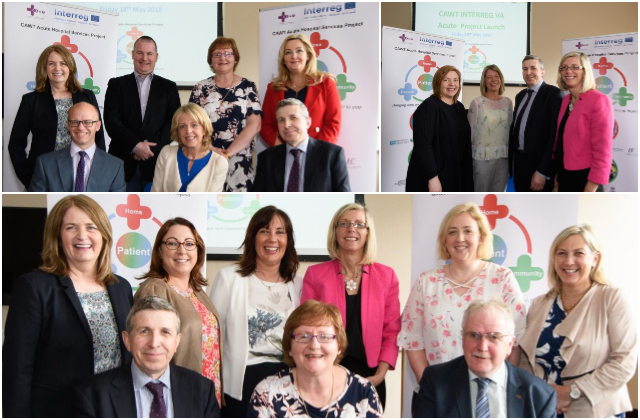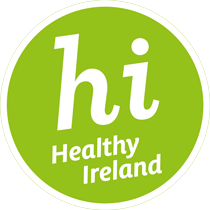You are here
EU invests €8.8 million euros in cross border acute hospital services

An €8.8 million EU INTERREG VA funded cross-border project has been launched, 13,000 patients are to benefit from Cross border services. The CAWT Acute Services Project has recently secured this EU funding to assess and treat higher volumes of patients more effectively through improvements to and modernisation of current service delivery models.
This EU funding allocation has been secured by the Co-operation and Working Together (CAWT) Health and Social Care Partnership. This Partnership comprises the HSE, the Southern Health and Social Care Trust, the Western Health and Social Care Trust, the Public Health Agency and the Health and Social Care Board.
Both scheduled and unscheduled care services will be reformed and modernised as part of this cross border EU funded project. The scheduled care activities focus on the specialities of dermatology, urology and vascular interventions. Unscheduled care initiatives being implemented include new advanced community paramedic services, clinical decision unit, community cardiac investigations and a community geriatrician led service.
It is also planned to establish an integrated clinical dermatology network using telehealth technologies. Other additional technology solutions will be investigated and implemented to enable clinicians to communicate with patients outside of the acute hospital setting. Specialist training for staff across all of these areas will be undertaken to support the development and implementation of these new and innovative ways of working.
Opening the launch event, Project Chair Sean Murphy, General Manager of Letterkenny University Hospital said: “It is a great privilege to be part of the CAWT cross border group that has secured this additional investment for communities and services. The collaborative working required to deliver this suite of initiatives, with the support of the EU funding, will provide patients with additional quality services and, in many situations, enable them to be treated much closer to home.” He added: “This project will also help to further strengthen and consolidate cross border and north / south co-operation in health and social care.”
Commenting on the EU investment, Damien McCallion, Director General CAWT, said: “This is an important EU funded project which is taking a cross border approach in order to improve access to services for people living in border areas in particular. He added: “The CAWT Acute Hospital Services project is supporting the investment and reforms underway in our health services, which places primary and community care at the heart of health care delivery and the enhancing of capacity within acute hospital services.”
Welcoming the launch of the CAWT Acute Hospitals Services project, Gina McIntyre, CEO of the Special EU Programmes Body said: “This highly innovative EU INTERREG VA funded project will deliver real efficiencies in vital health and social care services for the benefit of thousands of people on a cross-border basis. It will utilise some of the latest advances in e-health technology and enhance access to essential medical care used in the treatment of a wide-range of life-threatening illnesses.”
Commenting, Alastair Campbell, Director of Secondary Care in the Department of Health in Northern Ireland said: “The Department is delighted to be providing match-funding to this CAWT cross border project. The aims and objectives of the project support the Department of Health’s priorities for a modern health and social care service, in particular the focus on new ways of working across traditional organisational boundaries, the use of technology to drive better services, and ultimately, care that is designed around patients. He added: “I have no doubt that this project will provide valuable learning for other transformation projects underway in health and social care in Northern Ireland.”
Dr Ray Nethercott, Consultant Paediatrician at the Western Health and Social Care Trust also spoke at the event about cross border information exchange.
Match-funding for the project has been provided by both Departments of Health in Ireland and Northern Ireland.

